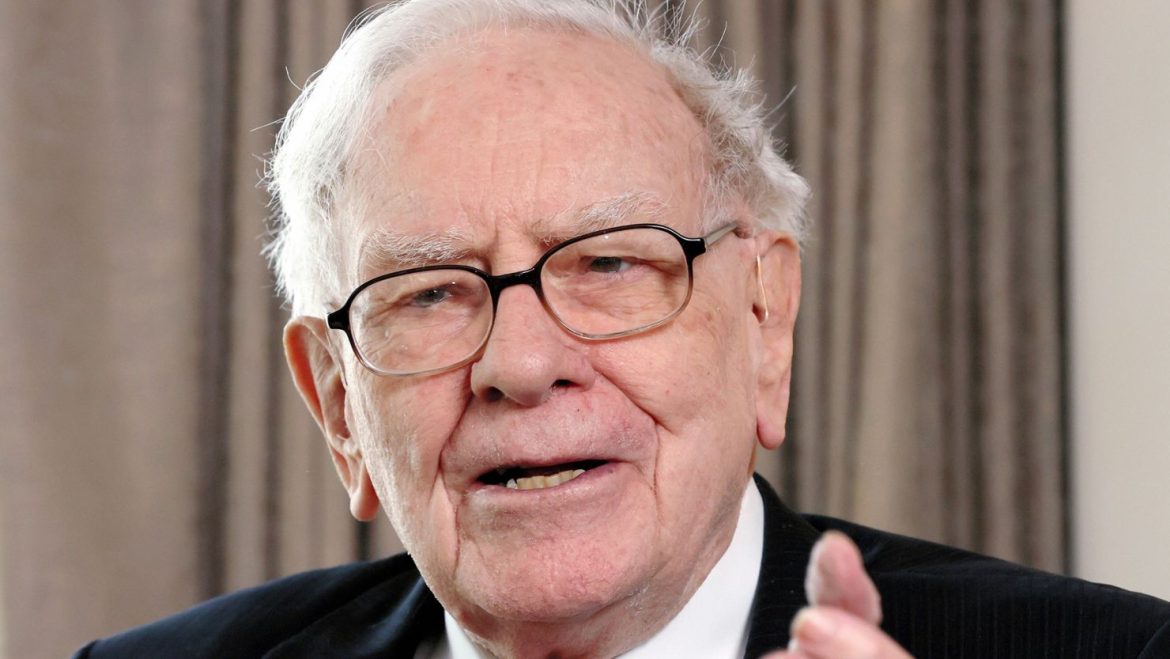Warren Buffett is stockpiling cash at an unprecedented rate . His company, Berkshire Hathaway , had a total of $325 billion in cash as of September of this year, a record figure that has everyone watching. Buffett’s recent moves have left many perplexed, especially as he continued to reduce his positions in companies such as Apple and Bank of America (BoA) , two pillars of his portfolio. This strategy has raised several inevitable questions: Does Buffett know something that others don’t? Should we follow his lead and accumulate cash?
Cash hoarding and sales from Apple and Bank of America
By the third quarter of 2024, Berkshire Hathaway has consolidated its cash position at $325.2 billion , a considerable jump from the $277 billion it held in June. This liquidity has been largely fueled by the sale of about 100 million Apple shares, which through 2023 accounted for nearly $178 billion in Berkshire’s portfolio. The value of its Apple position has shrunk to $69.9 billion , making it clear that Buffett, who once called the tech company one of his “four giants,” is no longer betting as heavily on it.
But the sales aren’t limited to just Apple. Berkshire has also sold about $1.48 billion worth of BoA stock , the first major sale of the holding since 2019. Together, these divestments add to the company’s cash hoard, leading many to wonder whether Buffett is preparing for a potential market tightening or simply following his “be fearful when others are greedy” investment philosophy.
What is Buffett seeing in the market?
Buffett has always advocated long-term investing in solid companies and avoiding short-term speculation, an approach that has kept him safe in times of crisis and turmoil. However, the rise in his cash hoard is too large to ignore. To give you an idea, in 2005, before the financial crisis, Berkshire already had 25% of its assets in cash ; this time around, the ratio has reached 28%, the highest level in three decades.
For many, this decision is a clear sign that Buffett sees few attractive opportunities in the market. At the May shareholder meeting, Buffett made his position clear: “In an environment of high interest rates and an overvalued stock market, finding companies at reasonable prices becomes more difficult.” However, Buffett could invest much of that cash in US Treasury bonds , which currently offer more than 4% risk-free yield. So why doesn’t he?
A change of strategy
The economic context of recent years has made decision-making difficult for many investors. Since the COVID-19 crisis , fiscal and monetary policies have led to a market where valuations are difficult to justify, and at the same time, high interest rates in 2023 and 2024 have made holding cash a reasonable alternative. But would this level of reserves be justified given the current situation? Unlike other times, when excess cash was justified by Berkshire’s growth, this time it seems that Buffett has decided not to risk more than necessary.
It must be said that this more cautious approach is not something new in his career. In the 2008 crisis, Buffett also hoarded cash, and on that occasion, the reward was clear: he was able to invest in undervalued assets, generating huge profits for Berkshire. Could he be looking for something similar now?
Profitability versus security: was it worth it?
While the current cash hoard provides Buffett with unprecedented flexibility, the past few years of market gains suggest the opportunity cost has been high. Since 2020, the market has seen several growth cycles driven by sectors such as technology and energy, segments where Berkshire has not capitalized as much as it could. Have significant opportunities been missed in favor of additional safety?
Although cash hoarding can be interpreted as a conservative measure, it is important to say that this approach has allowed Buffett to maintain a solid position in the event of any eventuality. Even in times of growth, he has preferred caution to aggressive exposure in overheated sectors .
What should investors do?
Back to the initial question: Should we do the same? If Buffett is willing to reduce his exposure to stocks, hoard cash and opt for short-term bonds, many investors might be tempted to replicate the strategy . After all, Buffett is known for his prudence and ability to anticipate market movements, and if he believes that valuations are high, there may be reasons to be more cautious.
However, the key to understanding his strategy lies in his long-term vision and risk management style. Buffett has not abandoned the market or withdrawn from his investments; he is simply biding his time. This accumulation of cash gives him the option to move with agility as soon as he sees opportunities in undervalued companies or recovering sectors.
For investors, the conclusion seems clear. While replicating their steps may not be viable for everyone, in an environment of high rates and uncertain valuations, increasing exposure to low-risk assets can be an effective way to wait out market corrections or take advantage of one-off opportunities without the urgency of full exposure.

